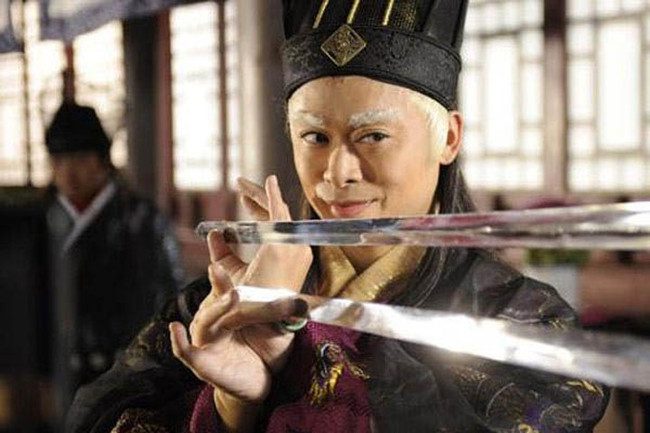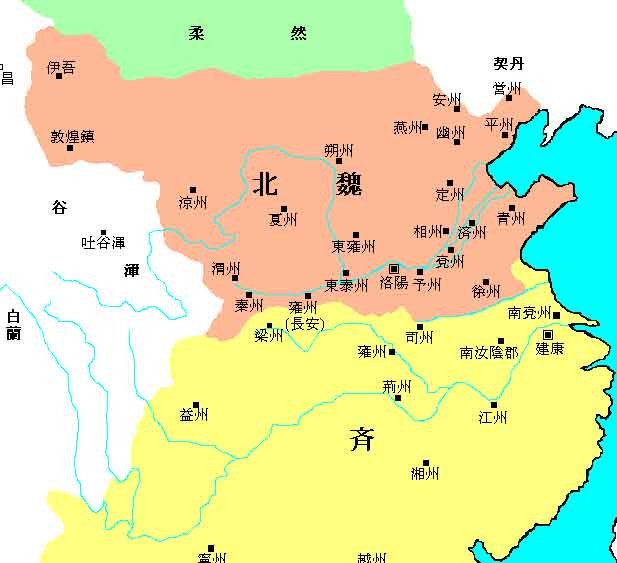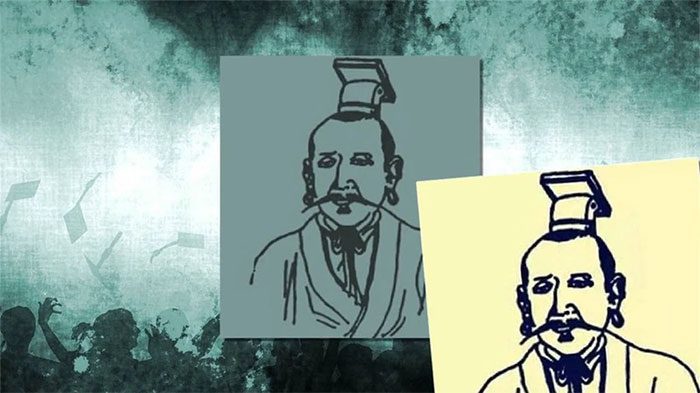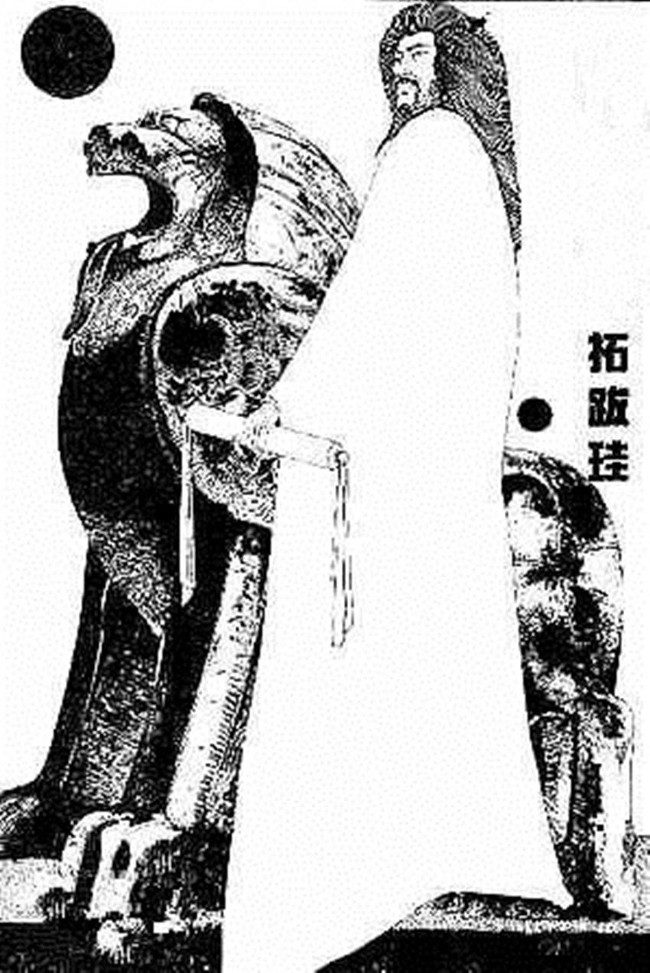Eunuchs who served during the Northern Wei Dynasty boldly murdered two Chinese emperors, acted violently, and seized power.
Zong Ai (401-452) was a eunuch serving under the Northern Wei Dynasty (386-534). According to the “Comprehensive Mirror to Aid in Government” by the Chinese historian Sima Qian, Zong Ai, of low status, was castrated for committing a crime and brought into the palace.
Zong Ai appeared mild-mannered, polite with colleagues, humble before superiors, and worked quickly, carefully, and discreetly, earning the affection of many. However, beneath this facade lay treachery, wickedness, and cruelty.

Eunuchs were once the power brokers of the Chinese feudal court. (Illustrative image).
Gradually, Eunuch Zong gained trust and became the caretaker of Crown Prince Tuoba Huang.
Tuoba Huang was the eldest son of Emperor Taiwu, Tuoba Tao, and was appointed crown prince at the age of four. Despite his physical incapacity, Zong Ai could not forget his lustful desires.
When the crown prince was intimate with a palace maid, Zong Ai secretly watched from outside. Upon discovering this, Tuoba Huang was furious and demoted Zong Ai. From then on, the relationship between Zong Ai and the crown prince became “strained and bitter.”
During a hunting trip, Emperor Taiwu, Tuoba Tao (the third emperor of the Northern Wei), noticed Zong Ai’s quick wit and thorough work, thus keeping him close. Zong Ai meticulously cared for the emperor, gaining favor and being appointed as the Chief of the Palace Staff, responsible for the emperor’s daily life.
With his newfound power, Zong Ai began to act tyrannically, openly accepting bribes and forming factions. In 451, the crown prince had a serious conflict with Zong Ai after discovering the eunuch’s embezzlement and self-serving actions.
Fearing that the crown prince’s loyal officials, Qiu Ni Dao Xing and Ren Ping Cheng, would report him, Zong Ai took action first.

The Northern Wei Dynasty (in dark brown) was a significant dynasty in Chinese history.
While Emperor Tuoba Tao was campaigning in the south, Zong Ai accused the crown prince’s two key aides of wrongdoing. Enraged, Emperor Taiwu ordered their execution. Many other officials close to the crown prince were also executed. In June 451, more than three months after Emperor Tuoba Tao returned to the capital, the crown prince fell ill and died at the age of 24, terrified.
After the crown prince’s death, Emperor Taiwu realized his mistake, drinking heavily day and night, filled with regret. This did not escape the notice of the cunning Zong Ai.
Fearing that his crimes would soon be exposed, Zong Ai decided to kill the emperor.
In the spring of 452, Emperor Tuoba Tao went hunting and returned exhausted, drinking heavily until he fell unconscious. Seizing the opportunity, Zong Ai expelled all the servants and, along with a trusted eunuch, suffocated the emperor to death, according to Sima Qian’s records.
The imperial physician, bribed by Zong Ai and fearing his power, concluded that Emperor Tuoba Tao’s death was due to overwork and a weakened body, which led to his demise after drinking. It is unimaginable that a eunuch could so easily assassinate an emperor.
After Emperor Taiwu’s sudden death at the age of 44, the two most likely heirs were the crown prince’s son, Tuoba Jun, and the third son of Emperor Taiwu, Prince Dongping Tuoba Han. Zong Ai did not want either to ascend the throne, fearing Tuoba Jun would seek revenge for his father and having a conflict with Tuoba Han.

A painting of eunuch Zong Ai. (Image: Gughengwang)
This eunuch only had a good relationship with the sixth son of the emperor, Tuoba Yu. That night, Zong Ai sealed news of the emperor’s death and quietly summoned Tuoba Yu to the palace.
Zong Ai also faked a decree from the empress, summoning the ministers to the palace for a purge. Those who dared to oppose Zong Ai were immediately executed. Prince Dongping Tuoba Han could not escape this fate either.
Tuoba Yu ascended the throne, not forgetting to appoint Zong Ai as Grand Marshal, General, and Chancellor. At that time, Zong Ai held all the power in the court, rivaling the emperor.
Tuoba Yu knew that his ascension was not legitimate, so he tried to win over officials by showering them with money and jewels. This quickly depleted the treasury.

The image of Tuoba Kuei, the founding emperor of the Northern Wei.
Since ascending the throne, Tuoba Yu indulged in wine and women, neglecting state affairs. Seeing this, Zong Ai, considering himself the benefactor of the emperor, further abused his power and acted tyrannically.
In the winter of 452, Tuoba Yu, following the advice of the ministers, planned to eliminate Zong Ai. However, the cunning eunuch struck first.
While Tuoba Yu was conducting a night ceremony for the late emperor, Zong Ai sent aides to assassinate him. Tuoba Yu died just seven months after ascending the throne.
After killing a second Northern Wei emperor, Zong Ai faced retribution when one of his confidants revealed the plot to the Minister of the South, Liu Li.
Liu Li secretly brought Tuoba Jun into the palace, summoned the imperial guards, declared Zong Ai guilty of regicide, and ordered his execution. Zong Ai’s death was recorded as slow and painful.
Contemporary Chinese historians still debate Zong Ai’s crimes. Although directly involved in the murders of two emperors, he was ultimately only convicted of assassinating Emperor Tuoba Yu. This raises questions about whether Zong Ai acted alone in the assassination of Emperor Taiwu, Tuoba Tao.
Ultimately, Tuoba Jun ascended the throne, becoming the fifth emperor of the Northern Wei at the age of 13, known in Chinese history as Emperor Wencheng, ending the turbulent period caused by Zong Ai.
| Eunuchs were indispensable figures in the history of feudal China. They were often close confidants trusted by the emperor, which led to abuses of power, holding significant authority, and even the ability to depose emperors. This series will recount the stories of the most notorious eunuchs in Chinese history. |





















































